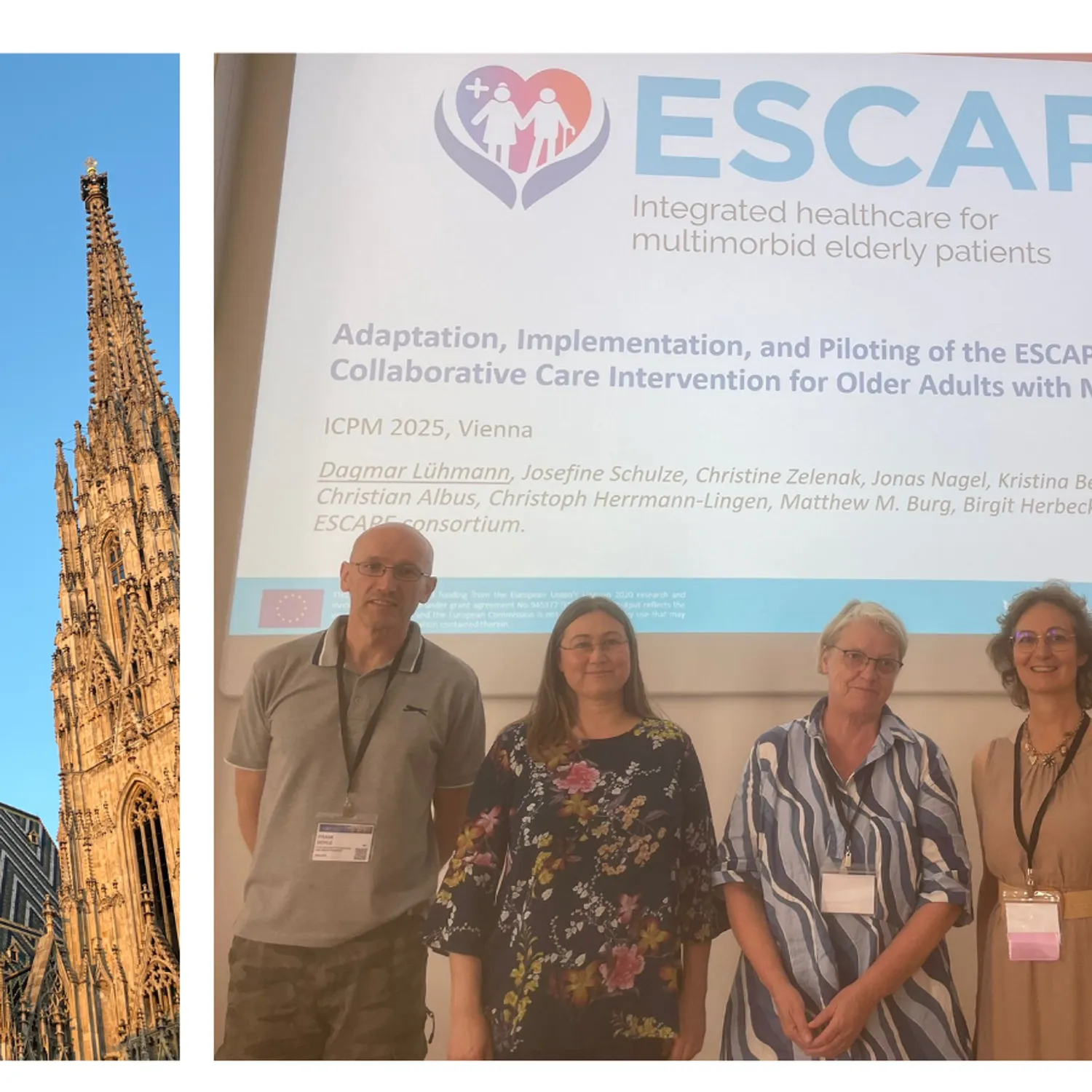The ESCAPE team was proud to participate in the 18th International Congress of Behavioural Medicine (ICBM) 2025 in Vienna this August, where we had the opportunity to share our work on integrated care, multimorbidity, and Blended Collaborative Care (BCC) with a global audience.
Throughout the week, ESCAPE was present at Booth #3, where we showcased our approach to supporting older adults with heart failure and complex multimorbidity. The booth served as a hub for conversations with researchers, clinicians, and policymakers eager to learn more about how ESCAPE is blending behavioural science and cardiology to improve patient outcomes.
Our presence at the conference also included several scientific presentations, beginning with Symposium 05: Managing Psychological Distress in Relation to Cardiovascular Disease. In this session, Professor Frank Doyle presented the overall concept of ESCAPE, outlining how our randomized trial and cohort study across six European countries is testing a patient-centered biopsychosocial BCC pathway.
In the same symposium, our Clinical Trial Coordinator Professor Christoph Herrmann-Lingen presented results from the TEACH trial, a large study of distressed patients with coronary heart disease in Germany. TEACH demonstrated that BCC can significantly improve both quality of life and psychological well-being, findings that are particularly encouraging as ESCAPE enters its final year.
Our work was also highlighted in Oral Presentation Session 35, which explored intervention development in varied populations. Dr. Dagmar Luhmann presented on the adaptation and piloting of the ESCAPE BCC model for older adults with multimorbidity, while Dr. Christine Zelenak shared insights into the baseline characteristics of our diverse multinational patient cohort. Dr. Adrienne Stauder contributed with a presentation showcasing three ESCAPE case reports, illustrating the flexibility of the BCC model and the importance of individualized, patient-centered care. Her talk highlighted how the intervention supports care managers in addressing the complex needs of patients with multimorbidity, ensuring coordination across healthcare providers and strengthening the link between patients, carers, and community resources.
Overall, ICBM 2025 was an vital platform for ESCAPE to contribute to the global conversation on behavioural medicine and integrated care. With strong engagement at our booth, impactful scientific presentations, and encouraging results from both TEACH and ESCAPE, the conference reinforced the growing recognition of BCC as a transformative model for patients with cardiovascular disease and multimorbidity.
We are thankful to the ICBM organisers for hosting such an inspiring event and to everyone who visited us or attended our sessions. As ESCAPE continues into its final project year, these exchanges will help us refine our approach and prepare for the optimal transfer of our results into practice.
